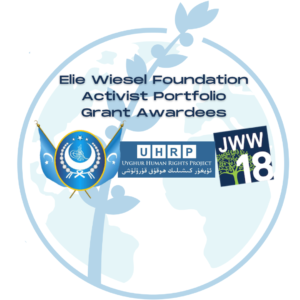by Gregory Metzger
One day Dinah, Yaakov’s only daughter, goes out to ‘visit the daughters of the land,’ and is seized and raped by Shechem, son of Hamor, the chief of that land. Yaakov hears of the rape but keeps silent until his sons are back from the field. Hamor pleads that Shechem longs for Dinah and wants to marry her. Yaakov remains silent, but his sons agree to the marriage provided that all of the males agree to be circumcised — they do. But on the third day thereafter, while they are still in pain, Dinah’s brothers Shimon and Levi invade their city, killing every male and taking their wives and children as prisoners and their wealth as booty.
Readers of the Torah have struggled with this chapter for 1000’s of years. How can a family that is carrying the message of G-d, the teachings of Avraham and Itzhak commit a massacre? What are we to learn from this tragic episode in our family history?
Recently, the play Ruined was performed. Lynn Nottage, the play’s author, courageously tells the story of the women of Eastern Congo; a place considered”the worst place on earth to be a woman.” Sexual violence is the “tactic of choice” used by armed groups to subjugate and humiliate populations they seek to control. The army, militias and armed gangs “choose”to employ rape as a battle tactic.
In the play, which tells the story of the women who survive rape and are forced to make hard choices in order to live, the word “ruined”, initially used to describe a woman who is physically, sexually mutilated, is layered and becomes descriptive of the all of the lives in every community and society where rape occurs. Not only are the survivors ruined, the impact of the rape and the destruction of the women tears families and villages apart.
Once, in a discussion during the seder on Peseach, the question was raised: “why did we need to mark the lintel of the doorway with blood to have Death pass over the household? Was God incapable of distinguishing Jewish from Egyptian homes? After studying, we wondered: perhaps once death and evil are let loose, the chaos in their midst obscures distinction and the innocent fall victim to flames they did not fan, to curses their actions did not invite. These lessons are clear and evidenced in Congo where rape is used as a tool of war as well as in this week’s Torah where all the men of Shechem were killed for the crime of one.
We are taught that the union of man and woman, sexual relations, has great power. In love, it carries the potential of creation. In lust, it brings the powers of chaos and social disruption. In hate, it is called rape and it releases the power of evil — It releases the uncontrollable force of the destroyer.
The play illustrated how rape becomes a catalyst for negative forces that cascade through society. Rape of women is so heinous and affects individuals beyond the immediate victim at so many levels that considered, moderated responses are almost impossible. Young men in peaceful farming communities become aggressive, revenge seeking combatants when their wives, mothers and sisters are raped.
When his daughter Dinah was raped, Yaakov was silent. Perhaps the pain was too great to speak? Perhaps he did not know how to respond? Perhaps he knew his voice would not be heard above the violent passions stirring in the hearts of his children?
The world has not changed much. We still do not know how to respond. Our voices are still silent. Human Rights groups estimate that 1,200 women are raped every day in Eastern Congo. This has been going on for years. With the recent escalation of the genocide, the larger newspapers and national blogs still have little or no coverage. How is this different from the Holocaust, when the world was also silent? Over 5 million have been murdered in this African genocidal conflict and the world is silent.
Avraham taught us to raise our voice in the name of the Justice. We know that silence is lethal and to “stand idly by the blood of our neighbor” is immoral. Yet we remain eerily quiet in the face of all we know.
After the Holocaust, we said “never again.” Yet in silence, the world has repeatedly failed in its promise of ‘never again.’ Since 1945, there have been many genocides. Did we mean, not just for the Jews? Or, that never again should any people suffer genocide?
“We are Jews!”says Rabbi Harold M, Schulweis. “We are responsible to protect each other, to love and protect the stranger, the pariah, the weak, those of another color, those of another faith. We need to cry out to the world and to influence the world, beginning with ourselves, to mandate them, “Lay not your hands upon the innocent. Do not do anything to harm them, for they are God’s children.” “At stake is humanity. At stake is the universe. At stake is the stature of God. The rabbis interpreted the verse “Adonai Tzilchah,” “God is your shadow,” to mean the following: If you stand bent down, then the shadow of God will be contracted and shriveled, but if you stand erect, the shadow will expand, grow mighty and enlarged.” As we stand, God will be elevated.”
Let us stand up, break the silence; let the world know that we are Jews.
Please call UN Ambassador Susan Rice at (212) 415-4000 and say:
“My name is _____, and I’m calling about the current violence in Democratic Republic of Congo. I urge you to please work with our international partners to pressure ALL parties to this conflict, including Congo, Rwanda and Uganda, to resolve the crisis through constructive negotiations.”


